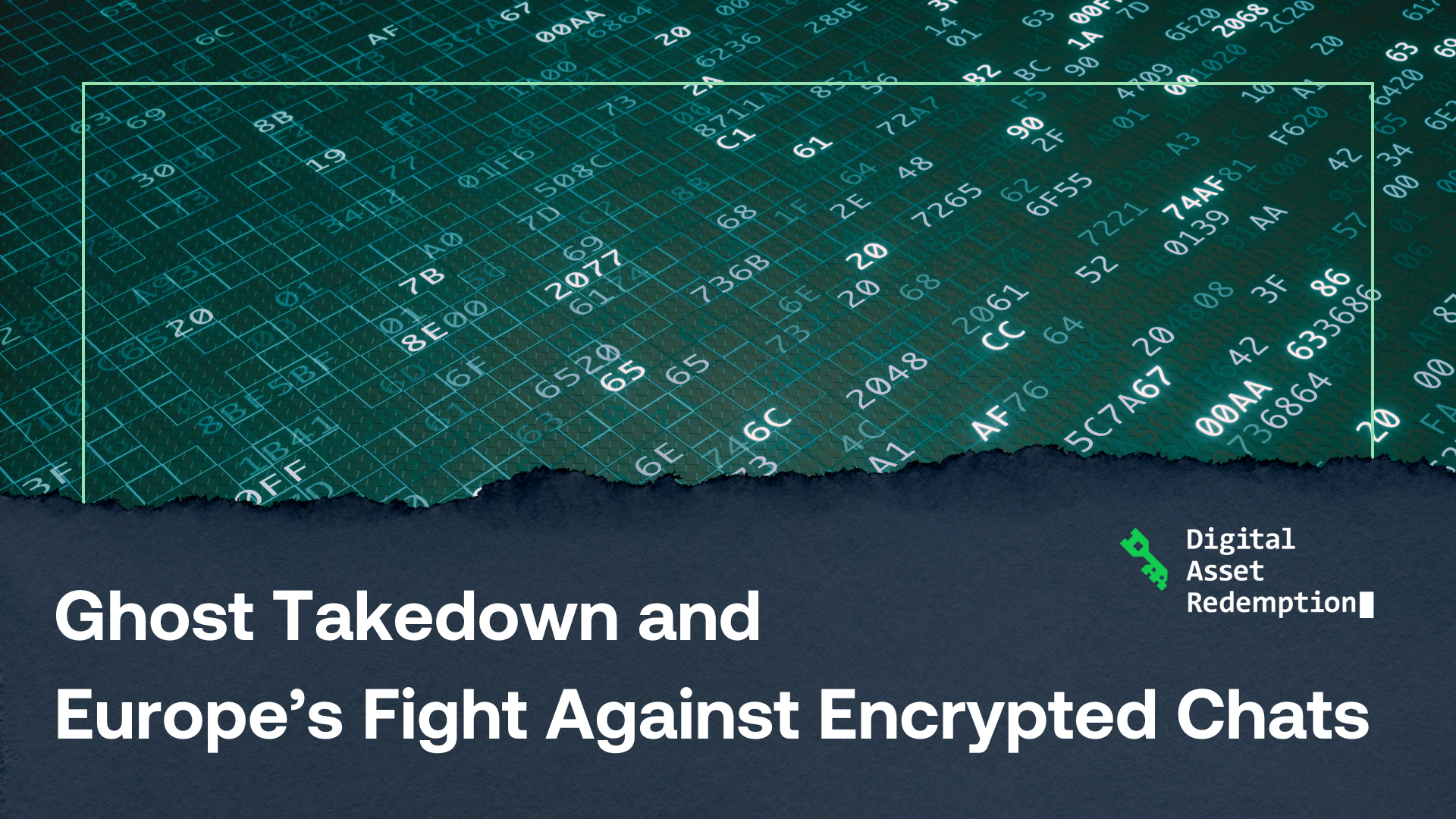Europol dismantles Ghost, an encrypted platform for organized crime, raising debate on lawful access to data and encryption policies.

On September 18, 2024, Europol shared that they took down Ghost, with the help of several law enforcement agencies from around the world. Ghost, an encrypted communication platform, was specifically constructed for organized crime. The platform was used for many applications, varying from money laundering to large-scale drug trafficking to even extreme violence in some cases. Ghost was especially popular in criminal circles because of its security measures - no personal information was needed to buy it, there were several encryption standards, and there was an easy means of destructing all messages on a target phone from the sender’s end. Globally, about 1,000 messages were sent daily on Ghost.
Considering the spread of its users, it makes sense that international collaboration was required to take down the tool. Australia, Canada, France, Iceland, Ireland, Italy, the Netherlands, Sweden, and the United States worked with Europol and Eurojust to dismantle Ghost. The investigators found servers in Iceland and France, financial assets in the US, and the company owners were in Australia. So far, 51 arrests have been made including 38 in Australia, 11 in Ireland, one in Canada and one in Italy (related to the Italian Sacra Corona Unita mafia) - but as the investigation continues more arrests are expected.
Catherine De Bolle, the executive director of Europol, celebrated the action: “Today we have made it clear that no matter how hidden criminal networks think they are, they can’t evade our collective effort. Law enforcement from nine countries, together with Europol, have dismantled a tool which was a lifeline for serious organised crime... The work carried out is part of our ongoing commitment to tackling organised crime wherever it operates. I want to extend my gratitude to all our global partners who played a vital role in making this operation a success.”
Still, the end of Ghost does not mean the end of all platforms like it - its users are expected to fragment and find other communication tools with similar features. These tools will also be well-encrypted, which only adds to the growing conversation about lawful access to data and encryption. Earlier this year, a ban on end-to-end encryption was nearly included on a draft regulation meant to combat child sexual abuse by exposing chats to law enforcement, but was quickly met with controversy amid concerns about privacy.
In the press release Europol maintains that “law enforcement needs access to communications among suspects to combat serious crimes” and that “[private companies] must ensure that their platforms are not safe havens for criminals and should provide mechanisms for lawful data access under judicial oversight and in full respect of fundamental rights.”
This comes after the founder of Telegram, Pavel Durov, was placed under formal investigation for complicity with criminal activity on the app, particularly illicit transactions between gangs. Telegram is a prominent communication platform, hosting over 950 million users according to Durov. Because the chats are encrypted, neither law enforcement or Telegram can access them. Still, France believes it may have the grounds to prosecute Durov and other tech giants whose online platforms allow illegal activities with their LOPMI law. If they are successful, this may put more pressure on communication platforms to change encryption policies to avoid legal issues.
Europol says it will “continue to prioritise the fight against encrypted communication technologies used by criminals, while also advocating for a balanced approach that respects privacy rights and upholds legal standards.” It appears that Europe’s fight against encrypted chats will be a long one, even as they manage to break down criminal channels without them.